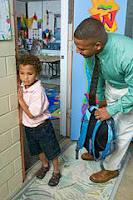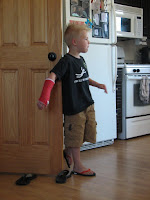ASD Meltdown-Management: Key Points for Parents of Kids on the Autism Spectrum

A meltdown is a condition where the youngster with ASD level 1, or High Functioning Autism, temporarily loses control due to emotional responses to environmental factors . It generally appears that the youngster has lost control over a single and specific issue, however this is very rarely the case. Usually, the problem is the accumulation of a number of irritations which could span a fairly long period of time, particularly given the strong long-term memory abilities of young people on the autism spectrum. Wh y T he Problems Seem Hidden— ASD kids don't tend to give a lot of clues that they are very irritated: Often ASD child-grievances are aired as part of their normal conversation and may even be interpreted by NTs (i.e., neurotypicals, or people without autism) as part of their standard whining. Some things which annoy ASD kids would not be considered annoying to NTs, and this makes NT's less likely to pick up on a potential problem. Their facial expressions very often w





